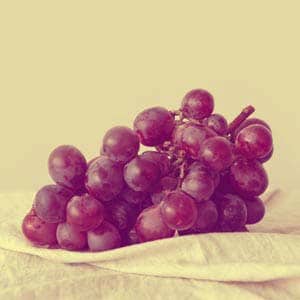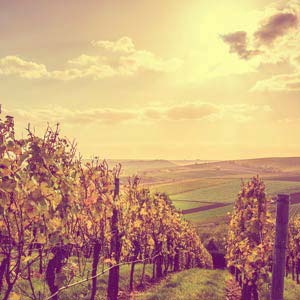Do you like wine? Do you care about your health and the environment? If you answered yes to both, you should consider drinking organic wine. It’s a great way to enjoy a delicious drink while being kind to your body and the planet. Here are just a few of the many reasons organic wine is a good choice for you.
Table of Contents
Why Drink Organic Wine?
Organic wine is different from conventional wine, as organic wine is made thanks to organic farming, meaning no synthetic pesticides, herbicides, or fertilizers were used during the grape’s growth. In addition, organic wines are not clarified with animal-based products like gelatin or isinglass (a substance made from fish bladders).
Organic wine production also avoids certain chemicals in the cellar, like copper sulfate and potassium sorbate. And finally, the wine isn’t filtered through activated charcoal, which is often made from animal bones.

What does that mean for you, the drinker? Many people believe that organic wines have a fuller flavor, with more complex aromas and flavors, when compared to conventional wine. Others believe that organic wines are more nutritious, as they lack the additives and chemicals found in many traditional wines.
There is some science to back up these claims. For example, a 2012 study published in the journal Food Chemistry found that organic wines had higher antioxidants than conventionally made wines. These antioxidants can help protect your body against cell damage, leading to diseases like cancer.
There is also some evidence that organic wines may be better for your gut health. For example, a study published in the journal Frontiers in Microbiology in 2016 found that organic wines had more beneficial bacteria than conventional wines. These bacteria can help protect your gut from harmful toxins and diseases.
So Does This Mean That Organic Wine Is Healthier For You?
There is no one-size-fits-all answer to this question. For example, some people may find that organic wines are healthier, while others may not notice a difference.
The best way to find out if organic wine is right for you is to try it out. Taste different brands and styles, and see which ones you like best. And if you’re interested in the health benefits of organic wine, be sure to read the labels carefully. Some wines may be labeled “organic,” while others may be marked as “made with organic grapes.”

And Consider Organic Farming Practices, Too
While you’re at it, why not try organic produce? Organic farming practices use sustainable methods to grow crops without synthetic pesticides, herbicides, or fertilizers. So it can be better for the environment and your health.

Organic farming involves using cover crops, crop rotation, and organic compost to maintain the health of the soil, helping to keep harmful chemicals out of the air, water, and food supply.
Organic farming also encourages natural pest controls like beneficial insects and birds. And it bans the use of genetically modified organisms (GMOs).
Organic winemakers claim that the resulting wine has a more intense flavor due to the lack of chemicals used in production when it comes to organically grown grapes.
Think About It, Do You Want Synthetic Chemicals In Your Wine?
So, should you drink organic wine? There is no easy answer, as everyone’s needs and preferences vary. But what it comes down to is this: do you want synthetic chemicals in your wine?
Conventional wine often contains synthetic chemicals such as:
- Pesticides like glyphosate
- Herbicides like atrazine
- Fertilizers like nitrogen and phosphorus
- Added sugars
- Preservatives like sulfur dioxide
- Clarifying agents like gelatin or isinglass
- Filtering agents like activated charcoal
These chemicals can have harmful effects on your health, both short and long-term.

One study found that these chemicals may be linked to health problems like cancer, infertility, and developmental disorders.
Consider Renewable Resources

Organic farming is the most sustainable option when it comes to wine production. Organic farming uses renewable resources like sunlight, rain, and compost to grow crops, all helping conserve energy and protect the environment. Crop rotations also help to add nutrients back into the soil, which reduces the need for synthetic fertilizers.
On the other hand, conventional farming relies heavily on fossil fuels and other non-renewable resources, leading to environmental problems like air and water pollution.
Not All Organic Wines Are Created Equal
When it comes to organic wine, not all wines are created equal. Some organic wines are made from grapes grown using conventional farming methods.
Others are made from grapes that were grown using sustainable, organic methods. So, it’s essential to read the label carefully to make sure you’re getting the real thing.
Also, is the wine certified organic? Has it been inspected and approved by a third-party organization like the USDA? Organic wine must meet specific standards to be certified, so you can be sure that it’s the real deal. Organic wine is an excellent choice if you’re looking for a healthy wine option. But not all organic wines are created equal. So, it’s essential to read the label carefully and make sure you’re getting the real thing.

Speaking Of Organic Certification
Certified organic wines are held to a higher standard than organic wines that are not certified. For instance, organic wine must be made from certified organic grapes. And the winemaker must use organic methods to make the wine.
To be certified organic, a wine must meet specific standards. These standards include:
- No synthetic pesticides, herbicides, or fertilizers
- No genetically modified organisms
- No added sugars, sulfites, or other additives
- No animal products
- No chemical clarifying or filtering agents
If a wine does not meet these standards, it cannot be labeled organic. So, it’s essential to look for the USDA organic seal on the bottle to make sure you’re getting a certified organic wine.
You Can Also Consider Natural Wine
If you’re looking for a healthy wine option, you might also want to consider natural wine. Natural wines are made from grapes grown using sustainable, organic methods. There are no synthetic chemicals or additives in natural wine.

Natural wine is not certified organic, but it does meet the standards set by the Natural Wine Association. This organization requires that all wines be made from organic grapes and that no synthetic chemicals or additives be used in the winemaking process.
If you’re looking for a healthy, sustainable wine option, consider natural wine. It’s not certified organic, but it does meet the standards set by the Natural Wine Association. So, you can be sure that it’s made from organic grapes and that no synthetic chemicals or additives were used in the winemaking process.
Wine production is a significant industry, and it’s not going away anytime soon. But that doesn’t mean we can’t make it more sustainable. There are several things we can do to make wine production more environmentally friendly:
- Use renewable resources like sunlight, rain, and compost to grow crops.
- Crop rotations help add nutrients back into the soil, reducing the need for synthetic fertilizers.
- Conventional farming relies heavily on fossil fuels and other non-renewable resources, leading to environmental problems like air and water pollution.
- Organic wine is made from grapes grown using sustainable, organic methods. So, when you’re drinking organic wine, you’re not only getting a healthier wine, but you’re also doing your part to help the environment.
Here’s What To Notice When You’re Drinking Organic Wine
When you’re drinking organic wine, you’re not only getting a healthier wine, but you’re also doing your part to help the environment. So, what should you look for when you’re buying organic wine?
- The USDA organic seal is one of the best indicators that a wine is organic.
- Organic wines are made from certified organic grapes.
- Organic wines must be made from organic grapes, and the winemaker must use organic methods to make the wine.
- There are no synthetic chemicals or additives in natural wine.
- Natural wine is not certified organic, but it does meet the standards set by the Natural Wine Association.
Organically Grown Grapes Want Love Too!
It’s not just the environment that benefits from organic wine production. The workers who pick the grapes also reap the benefits of organic farming.

- Conventional farming relies heavily on pesticides and other chemicals. These chemicals can be harmful to the workers who are exposed to them.
- Organic farming does not use pesticides or other chemicals. So, the workers who pick the grapes are not exposed to harmful chemicals.
- Organically grown grapes are also more likely to be picked by hand, reducing the need for machines, which can be dangerous for the workers.
When you’re drinking organic wine, you’re not only getting a healthier wine, but you’re also doing your part to help the environment. You’re also helping to protect the workers who pick the grapes.
We all must do our part to support sustainable organic farming, and drinking organic wines is how we do our part! Moderate wine consumption is critical, though. Too much of anything is not suitable for you.
Let’s Mention Biodynamic Wine
Biodynamic wine is another type of organic wine. So, what is biodynamic wine?
- Biodynamic wine is made from certified biodynamic grapes.
- All biodynamic wines must be made from biodynamic grapes, and the winemaker must use biodynamic methods to make the wine.
- There are no synthetic chemicals or additives in biodynamic wine.
- Biodynamic wine is not certified organic, but it does meet the standards set by the Biodynamic Wine Association.
- Biodynamic wine is made from grapes grown using sustainable, organic methods. So, when you’re drinking biodynamic wine, you’re not only getting a healthier wine, but you’re also doing your part to help the environment.
Even if you’re not familiar with the term “biodynamic wine,” you’ve probably heard of some of the brands that make it. Some of the most popular biodynamic wines are:
- Frey Organic Wine
- Domaine de la Romanée-Conti
- Gaja
Don’t Forget Fermentation.
The fermentation process of organic wine is different from conventional wine. Conventional wines are often made with sulfur dioxide (SO2) and other additives to preserve them. Organic wine isn’t made with any additives, so it relies on its natural fermentation process to keep it fresh, making it more susceptible to spoilage, but it also makes it more flavorful.
Here’s How To Support Organic Vineyards
When you’re drinking organic wine, you’re not only getting a healthier wine, but you’re also doing your part to help the environment. You’re also helping to support sustainable organic farming. But how can you do more to keep organic vineyards?

- Buy organic wine from local vineyards.
- Become a member of a local vineyard.
- Attend wine tastings and events at local vineyards.
- Visit the vineyards and talk to the winemakers.
- Buy organic wine from online retailers.
When you buy organic wine, you’re not just getting a healthier wine, but you’re also doing your part to help the environment.
Organic certification is the process of verifying that a product has been grown and processed using sustainable, organic methods. To be certified organic, a product must meet specific standards set by an organic certification agency. There are many different agencies, so it’s essential to research the agency that certifies your favorite organic products.
There is no one-size-fits-all answer to whether or not to buy organic wine. Some people prefer to buy only organic products, while others are happy to buy organic and conventional products. The important thing is to be aware of the differences between organic and conventional wines and make informed decisions about which wines you buy.
When you’re drinking organic wine, you’re not only getting a healthier wine, but you’re also doing your part to help the environment. You’re also helping to support sustainable organic farming.
Current Organic Certifications Include:
- USDA Organic
- Canada Organic
- European Union Organic
- Australian Certified Organic
- Japanese Agricultural Standard organic
Check your wine bottle, and make sure it’s not non-organic wine!
In Closing
A wine’s taste and quality are determined by many factors, including the type of grape, the climate where it was grown, and the methods used to make it.
For some of us, synthetic chemicals in our wine just aren’t desired. We’d rather drink grape juice instead!
But for wine drinkers like us, you’ll find many empty wine bottles of organic wine in our bins each week. But it does lead to the question surrounding how long does organic wine last?